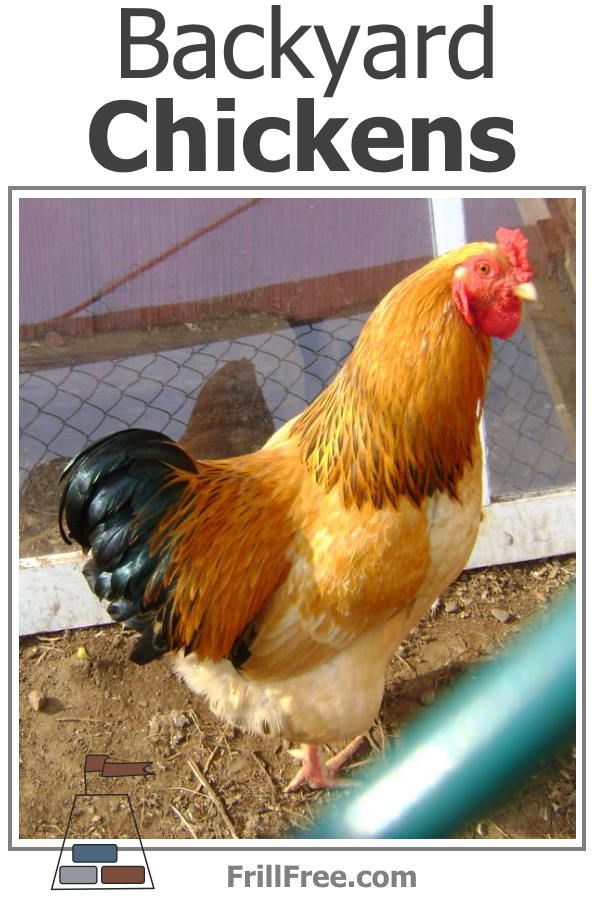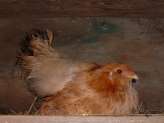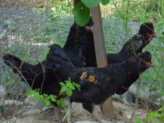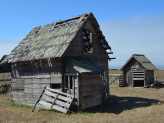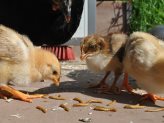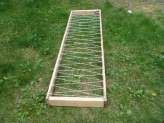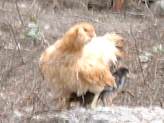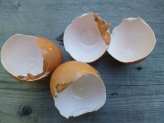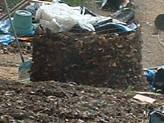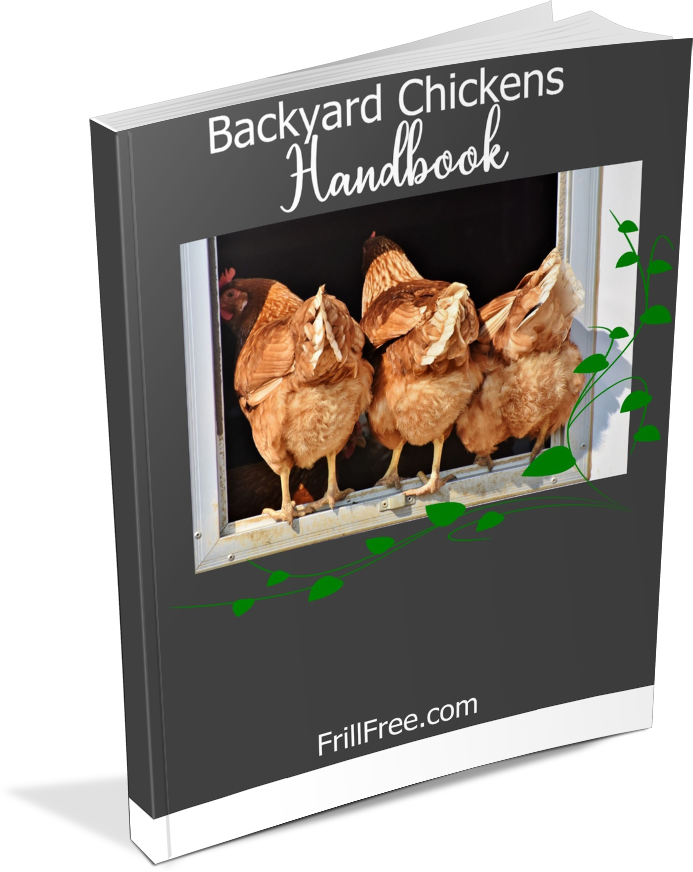- Homesteading
- Backyard Chickens
Backyard Chickens
Raising Your Own Poultry Flock
What organic garden would be complete without a few bantam hens running around to scratch in that lovely rich soil for bugs and germinating weed seeds?
Not to mention that their antics will keep you amused for hours.
They don't take up much room, many people have successfully raised a few hens with a chicken tractor or homebuilt chicken coop.
They eat many bugs and weeds, and if you're like me, partial to the smaller breeds, they don't do a lot of damage in their search for pests.
I have raised many different types of chickens, and above all, my favorite ones have been the bantam breeds.
These are usually the same as the regular larger breeds genetically, but have been mixed with smaller types of birds in their ancestry.
Japanese Bantams have been bred for their petite form, some of them no larger than a pigeon. What they lack in size, they make up for in attitude.
Silkies have been raised by many for their calm and kind natures, as well as their unusual feathers, which are more like hair.
You've heard the saying, Small Man's Syndrome?
The bantam rooster especially has that in spades. They have no conception of size, their confidence can sometimes get them in trouble.
In a really interesting twist, this bantam rooster (left) was a great caretaker of the chicks; once mama hen lost interest in the half grown youngsters, Rags would brood them, to keep them warm on cooler days.
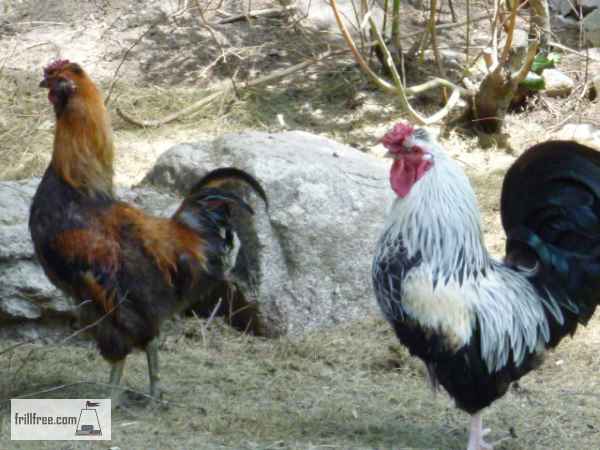
A mother hen with chicks is especially protective, and will go on the attack if her babies are threatened.
Fortunately, most predators are so surprised at their spunk that they sometimes slow to react to the unexpected fierceness of these tiny poultry, and back away, giving them the chance to escape.
Cute though baby chicks are, one of the most important reasons to raise some poultry is the valuable manure.
If you're serious about gardening organically, this is one of the richest sources of nitrogen.
In fact, sometimes it can burn plants if you use it too fresh - chicken manure, like all guano, should be composted with other ingredients, or used very judiciously as a top dressing around plants that require a high nitrogen feed.
Called a 'hot' manure, this stuff lives up to its name. I use it mainly mixed with the leaves and sawdust of the birds litter in their chicken house, and compost it well. Then it can be safely added to the soil. Find out more about the Deep Litter System here.
It's not advised to use fresh chicken manure in vermicomposting, but if it's aged, the worms will thrive.
Another good use for mature chicken compost is to make compost tea with it.
If you have ever had the experience of walking into your chicken house and being brought to your knees by the smell of ammonia, you need to see how to deal with ammonia smell in the chicken pen.
